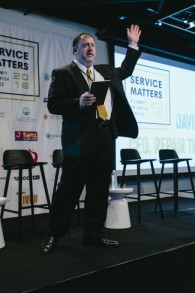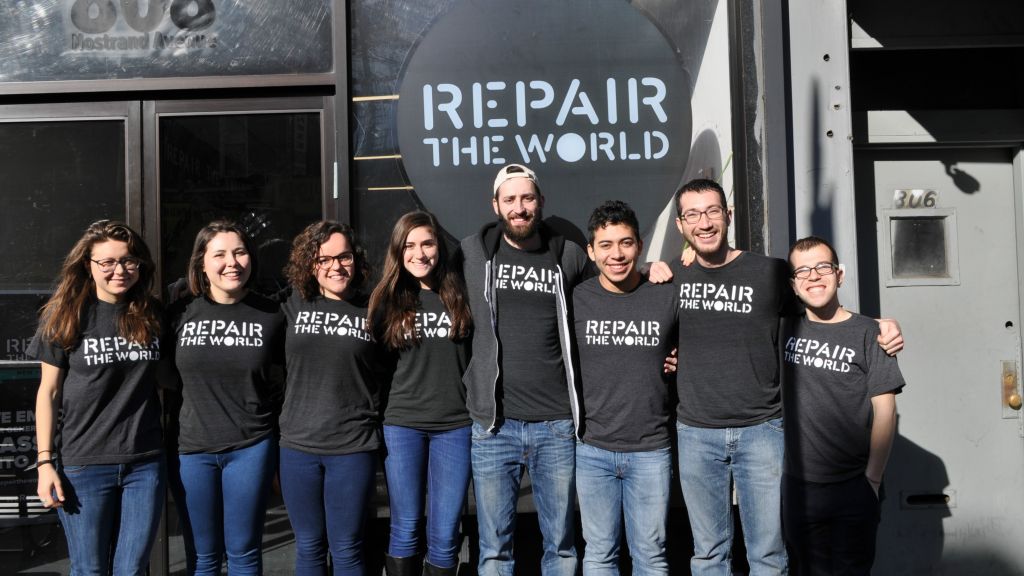Josh Lake, founder and owner of Outdoor Jewish Adventures, loves to take groups camping for a Shabbat wilderness retreat. On Fridays, they bake hallah and create a full Shabbat dinner over a Dutch oven. At night, they go stargazing, and he loves to teach people that the expression “mazal tov” actually comes from navigating by the stars.
a full Shabbat dinner over a Dutch oven. At night, they go stargazing, and he loves to teach people that the expression “mazal tov” actually comes from navigating by the stars.
“When our ancestors lived in Israel, they did not walk in the middle of the day, when the temperature was 110 or 120 degrees Fahrenheit. They waited until night and navigated by the stars,” Lake said. “The word ‘mazal’ actually means constellation — meaning, when we say mazal tov, we are wishing people a good constellation to navigate by.”
He’s full of little insights like that.
Lake, who operates out of Oregon, is part of a growing niche of outdoor enthusiasts who are bringing Jewish education and spirituality into the wilderness. They are a handful of operators, many of whom know each other, who run hiking, paddling, camping, or other adventure trips to Costa Rica and the Caribbean as well as in Alaska, Wyoming, Maine, and the Adirondack Mountains. A few run trips in the winter — Ami Greener of Greener Travel, for instance, who often collaborates with Rabbi Howard Cohen of Burning Bush Adventures, runs a Jewish dogsledding trip in Maine in the winter. But few have found a lucrative business model, notwithstanding the surge in interest for outdoor education at Jewish summer camps and the local volunteer Jewish outdoor clubs that boast thousands of members.
In early 2007, NJJN captured what appeared to be a burgeoning clutch of travel companies and organizations catering to Orthodox Jews who were interested in exploring the great outdoors, but preferred that others make arrangements for kashrut and Shabbat. The number of Jews interested in these services grew so much that established companies were moved to create kosher adventures, but many of the new businesses collapsed during the recession.

A worship service during a hike in Utah with Avanim Adventures.
Photo courtesy Ari Hoffman
One that remains is Kosher Expeditions. Founded in 1997, it originally offered trips to such locales as Costa Rica, Yellowstone National Park, Africa, and the Canadian Rockies; they included camping and what could be described as low-key kosher food. But the concern survived by dropping out of the outdoor adventure business — and securing a place in the luxury market; kosher trips remain just one arm of its business.
“When the recession hit, all of our partners melted away,” said owner David Lawrence in a recent phone conversation with NJJN. “We had to pivot. We had to take a hard look at which way to go. That’s when we found out what worked: kosher river cruises.”
With that realization, he jettisoned the rugged adventure model altogether, and changed the name to Kosher Luxury.
“Someone out of college may know a good hike,” he said, “but that’s different from [understanding] the operational costs,” which he called “insane.”
“Think about it. You need a chef, a mashgiach, kosher food. It’s a huge overhead that has to be amortized. If there’s 10 people, it could be $1,000 [per person] before any other costs are figured in,” Lawrence said. “People think because it’s adventure, it’s cheap. But if you’re a true travel company and you’re bonded and insured, and you follow all the laws, it’s difficult to break into the travel market.”
By shifting to a model in which the company controls the home base, it’s easier to manage the kashrut; and by shifting to a river cruise, they can attract enough people to turn a profit and keep costs reasonable for a luxury trip.
Even now, Lawrence said, he can’t survive on the kosher market alone. The audience is limited and he runs just two to three kosher trips each year. The rest of his business falls into a separate, non-kosher division.
Meanwhile, a different market has emerged: Adventure with a spiritual kick, geared toward a Jewishly engaged population with more fluid observance — for instance, those who would not object to using a flashlight on Friday night, or who will eat vegetarian food without a hechsher, which lowers the costs significantly. But, Lawrence said, as the first question potential travelers ask him is “Who’s your hashgacha?” or kosher authority, an outfitter with a somewhat relaxed approach to kashrut is a non-starter for most strictly Orthodox Jews.
A recent search found at least four companies catering to the observant outdoorsman, including Outdoor Jewish Adventures, Avanim Adventures, Burning Bush Adventures, and Greener Travel. Two, Greener and Avanim, have started since the recession, both in 2011. (This does not include other longstanding tour companies catering to the Jewish singles and general Jewish adult travel organizers, like Steppin’ Out Adventures, established in 1993, or Amazing Journeys, which started 14 years ago, because they do not focus exclusively on wilderness trips or travel involving rugged locations.) But even in this niche, financial success is elusive, and a creative approach and a separate day job keeps the operators going.
Given the growing number of Jewish nonprofits focusing on nature, the Jewish connection to land, and outdoor education — from Hazon and Wilderness Torah to Urban Adamah and Eden Village Camp, not to mention the launching of the JOFEE Fellowship, the first professional training program for aspiring educators in the field of “Jewish Outdoor Food, Farming, and Environmental Education,” funded by the Jim Joseph Foundation, it might appear to be a no-brainer to offer Jewish wilderness travel.
And there are thousands of Jews who participate in local Jewish outings. Moshe Wolcowitz, president of the not-for-profit, volunteer-led Jewish Outdoors Club, said they have about 3,000 members from New York and New Jersey, including West Orange, Highland Park, Teaneck, and Passaic. Any given event attracts from 12 to 40 people. Similarly, the Mosaic Outdoor Mountain Club has been operating successfully as a national Jewish outdoor club with local chapters for decades, established originally in Denver in 1988. The greater New York group, which includes northern New Jersey, has a membership of 1,270. Like the outdoor club, it offers mostly volunteer-led day trips, which attract anywhere from a handful to several dozen participants, as well as a handful of overnights.
Why, with so many Jews interested in the outdoors, and observant wilderness specialists willing and able to start and run travel companies catering to them, is it so hard to hit on a sustainable business model? Wolcowitz thinks he has the answer. He acknowledged that before people come to an event, they say they’d rather stay in a five-star hotel than a campsite. But, he said, “Once they go through the experience, they come back. I personally feel that everyone loves the outdoors — but not everyone knows it!”
He also said that outdoors clubs are slow to engage a for-profit tour company, since they prefer to run trips themselves rather than hire an outside organizer.
All four of the companies named above have run into this issue. For most of them, it’ a sideline, a way to indulge their passion for the woods. They are not operating as not-for-profits, but neither are they making a living through their companies.
As Ari Hoffman of Avanim Adventures, a clinical therapist by day, acknowledged, “If I were doing this for a living, I’d be living in a tent.”
David Lawrence of Kosher Luxury believes that people don’t want to pay for what they view is essentially a do-it-yourself type of experience. “There are two sets of people going places, those who are okay eating camp food, and those who want a certain quality of food.” In his experience, it’s tough for a travel company to make money on the first group, which he dubs the “Let’s set up a tent and do it kosher” model, because people aren’t willing to pay the real costs of such a trip — they think they can do it themselves.
“You can’t make a living on the low end,” he said. “People think because it’s ‘adventure’ it’s cheap.”
Howard Cohen of Burning Bush Adventures is one of the pioneers in the field of Jewish outdoor adventures. He started offering guided trips in 1990, and now focuses on canoeing and dogsled excursions. It’s always been more avocation than a way to pay the mortgage, he said, but he hasn’t run into the overhead challenges faced by Lawrence because he serves as both guide — with his own equipment — and rabbi; Cohen holds ordination from the Reconstructionist Rabbinical College. Still, he said, “finding a group of people interested in a back-country experience and Judaism is a really small group. My sense is that the bulk of the Jewish community either looks at camping as something for kids to do at summer camp or as a do-it-yourself thing.” As a rabbi with a part-time congregation, he’s not reliant on the business to make a living.
Ami Greener’s company focuses on private tours, or what he calls “controlled adventure” in Costa Rica, Trinidad, and Tobago for anyone, Jewish or not, as well as Jewish group tours, mostly for young professionals in the 20-40 demographic. He says his trips are a “unique, outdoorsy adventure” that include rafting, ziplining, hiking in the jungle, and sleeping under a net in a lodge in the wild.
He grew up Orthodox and found that many of those coming on his trips were Jewish. But while he thinks he could run a trip that meets Orthodox requirements, he believes the experience loses much of its local soul.
The first and most basic issue is food. For example, on trips to Costa Rica, the group stays on a farm “in the middle of nowhere. It’s a different kind of trip off the beaten path, staying in family-friendly eco-lodges or taking classes in someone’s house,” he said. Most of the travelers Greener takes will eat vegan or vegetarian options in local cafes. “I would never serve pork or shellfish, but the rest of the food is not hechshered,” he said. They also often make cocoa with locals, which would be an issue, as would cooking classes in locals’ homes.
And then, there’s the tricky matter of how to handle mixed-gender activities.
“Will Orthodox travelers go to a dance class or will they be shomer negiya?” he asked, referring to the Orthodox laws prohibiting physical contact between the sexes. “How will the beach be? Will they wear bathing suits? These are all little issues to work out.”
Even so, Greener still holds out hope that he’ll figure out how to accommodate these needs without losing the essence of the trip. “People want to go on an adventure. It’s so limiting to be on a cruise or all-inclusive experience.”
Avanim Adventures is one of the few entries in the Orthodox arena. The trips — usually two to three each year, mostly in the summer — are glatt kosher and shomer Shabbat, geared to the needs and interests of Orthodox Jews, and the hashgacha is posted on the website. Founder Ari Hoffman holds Wilderness First Responder certification and has a yeshiva background, having graduated from Yeshivas Toras Chaim in Denver, and he spent time at Yeshivas Torah Ore in Jerusalem. His partner, Rabbi Elie Ganz, supervises the kashrut and deals with other halachic issues that arise in the wilderness. But Hoffman admitted that it’s hard to find people for his trips — he wanted to lead one just for mothers and daughters, but didn’t get enough response, and often for his clients, the wilderness is something they have not experienced — it’s something, as Wolcowitz said, they don’t yet know they want to go on.
“What gives me the most naches is at night people looking up at the stars in awe,” said Hoffman. “Now just thinking about it gives me the chills. On so many trips there are people who have never seen it, and I have had the privilege and honor to facilitate the experience to allow them to look at the stars.”
Lake, who started Jewish Outdoor Adventures in 2004, is among the few who have found a way to make a living. He developed the Jewish Nature Kit, an actual box filled with laminated activities and curricula related to environmental education that he designed to be used by staffers at camps on or campuses with little or no outdoor experience. Lake holds a master’s degree in Jewish education from the Jewish Theological Seminary and completed a seminar in informal Jewish education from Brandeis University; he also has certification as a wilderness first responder and from the National Outdoor Leadership School. He works as a consultant with educators and summer camps, where outdoor adventure and/or education has become an integral part of the experience.
But even in summer camps, it’s a niche field. Jewish Outdoor Leadership Training — a national program begun in 2015 at Camp Tawonga in California to professionalize Jewish outdoor education and camping through five-day seminars — is attracting only small numbers. Ten people participated in 2016, representing eight camps, slightly down from 2015, according to Myla Marks, JOLT’s director of wilderness programs. But perhaps the moment is still coming. As Marks suggested, maybe if young people begin their interest in the wilderness at Jewish camps when they are young, they will pursue it throughout their lives.
So if you’re ready to book your Jewish dogsledding vacation in Maine, go for it. But if you were hoping to become a wilderness guide who could integrate Jewish spirituality into your trips, better keep your day job.
One that remains is Kosher Expeditions. Founded in 1997, it originally offered trips to such locales as Costa Rica, Yellowstone National Park, Africa, and the Canadian Rockies; they included camping and what could be described as low-key kosher food. But the concern survived by dropping out of the outdoor adventure business — and securing a place in the luxury market; kosher trips remain just one arm of its business.
“When the recession hit, all of our partners melted away,” said owner David Lawrence in a recent phone conversation with NJJN. “We had to pivot. We had to take a hard look at which way to go. That’s when we found out what worked: kosher river cruises.”
With that realization, he jettisoned the rugged adventure model altogether, and changed the name to Kosher Luxury.
“Someone out of college may know a good hike,” he said, “but that’s different from [understanding] the operational costs,” which he called “insane.”
“Think about it. You need a chef, a mashgiach, kosher food. It’s a huge overhead that has to be amortized. If there’s 10 people, it could be $1,000 [per person] before any other costs are figured in,” Lawrence said. “People think because it’s adventure, it’s cheap. But if you’re a true travel company and you’re bonded and insured, and you follow all the laws, it’s difficult to break into the travel market.”
By shifting to a model in which the company controls the home base, it’s easier to manage the kashrut; and by shifting to a river cruise, they can attract enough people to turn a profit and keep costs reasonable for a luxury trip.
Even now, Lawrence said, he can’t survive on the kosher market alone. The audience is limited and he runs just two to three kosher trips each year. The rest of his business falls into a separate, non-kosher division.
Meanwhile, a different market has emerged: Adventure with a spiritual kick, geared toward a Jewishly engaged population with more fluid observance — for instance, those who would not object to using a flashlight on Friday night, or who will eat vegetarian food without a hechsher, which lowers the costs significantly. But, Lawrence said, as the first question potential travelers ask him is “Who’s your hashgacha?” or kosher authority, an outfitter with a somewhat relaxed approach to kashrut is a non-starter for most strictly Orthodox Jews.
A recent search found at least four companies catering to the observant outdoorsman, including Outdoor Jewish Adventures, Avanim Adventures, Burning Bush Adventures, and Greener Travel. Two, Greener and Avanim, have started since the recession, both in 2011. (This does not include other longstanding tour companies catering to the Jewish singles and general Jewish adult travel organizers, like Steppin’ Out Adventures, established in 1993, or Amazing Journeys, which started 14 years ago, because they do not focus exclusively on wilderness trips or travel involving rugged locations.) But even in this niche, financial success is elusive, and a creative approach and a separate day job keeps the operators going.
Given the growing number of Jewish nonprofits focusing on nature, the Jewish connection to land, and outdoor education — from Hazon and Wilderness Torah to Urban Adamah and Eden Village Camp, not to mention the launching of the JOFEE Fellowship, the first professional training program for aspiring educators in the field of “Jewish Outdoor Food, Farming, and Environmental Education,” funded by the Jim Joseph Foundation, it might appear to be a no-brainer to offer Jewish wilderness travel.
And there are thousands of Jews who participate in local Jewish outings. Moshe Wolcowitz, president of the not-for-profit, volunteer-led Jewish Outdoors Club, said they have about 3,000 members from New York and New Jersey, including West Orange, Highland Park, Teaneck, and Passaic. Any given event attracts from 12 to 40 people. Similarly, the Mosaic Outdoor Mountain Club has been operating successfully as a national Jewish outdoor club with local chapters for decades, established originally in Denver in 1988. The greater New York group, which includes northern New Jersey, has a membership of 1,270. Like the outdoor club, it offers mostly volunteer-led day trips, which attract anywhere from a handful to several dozen participants, as well as a handful of overnights.
Why, with so many Jews interested in the outdoors, and observant wilderness specialists willing and able to start and run travel companies catering to them, is it so hard to hit on a sustainable business model? Wolcowitz thinks he has the answer. He acknowledged that before people come to an event, they say they’d rather stay in a five-star hotel than a campsite. But, he said, “Once they go through the experience, they come back. I personally feel that everyone loves the outdoors — but not everyone knows it!”
He also said that outdoors clubs are slow to engage a for-profit tour company, since they prefer to run trips themselves rather than hire an outside organizer.
All four of the companies named above have run into this issue. For most of them, it’ a sideline, a way to indulge their passion for the woods. They are not operating as not-for-profits, but neither are they making a living through their companies.
As Ari Hoffman of Avanim Adventures, a clinical therapist by day, acknowledged, “If I were doing this for a living, I’d be living in a tent.”
David Lawrence of Kosher Luxury believes that people don’t want to pay for what they view is essentially a do-it-yourself type of experience. “There are two sets of people going places, those who are okay eating camp food, and those who want a certain quality of food.” In his experience, it’s tough for a travel company to make money on the first group, which he dubs the “Let’s set up a tent and do it kosher” model, because people aren’t willing to pay the real costs of such a trip — they think they can do it themselves.
“You can’t make a living on the low end,” he said. “People think because it’s ‘adventure’ it’s cheap.”
Howard Cohen of Burning Bush Adventures is one of the pioneers in the field of Jewish outdoor adventures. He started offering guided trips in 1990, and now focuses on canoeing and dogsled excursions. It’s always been more avocation than a way to pay the mortgage, he said, but he hasn’t run into the overhead challenges faced by Lawrence because he serves as both guide — with his own equipment — and rabbi; Cohen holds ordination from the Reconstructionist Rabbinical College. Still, he said, “finding a group of people interested in a back-country experience and Judaism is a really small group. My sense is that the bulk of the Jewish community either looks at camping as something for kids to do at summer camp or as a do-it-yourself thing.” As a rabbi with a part-time congregation, he’s not reliant on the business to make a living.
Ami Greener’s company focuses on private tours, or what he calls “controlled adventure” in Costa Rica, Trinidad, and Tobago for anyone, Jewish or not, as well as Jewish group tours, mostly for young professionals in the 20-40 demographic. He says his trips are a “unique, outdoorsy adventure” that include rafting, ziplining, hiking in the jungle, and sleeping under a net in a lodge in the wild.
He grew up Orthodox and found that many of those coming on his trips were Jewish. But while he thinks he could run a trip that meets Orthodox requirements, he believes the experience loses much of its local soul.
The first and most basic issue is food. For example, on trips to Costa Rica, the group stays on a farm “in the middle of nowhere. It’s a different kind of trip off the beaten path, staying in family-friendly eco-lodges or taking classes in someone’s house,” he said. Most of the travelers Greener takes will eat vegan or vegetarian options in local cafes. “I would never serve pork or shellfish, but the rest of the food is not hechshered,” he said. They also often make cocoa with locals, which would be an issue, as would cooking classes in locals’ homes.
And then, there’s the tricky matter of how to handle mixed-gender activities.
“Will Orthodox travelers go to a dance class or will they be shomer negiya?” he asked, referring to the Orthodox laws prohibiting physical contact between the sexes. “How will the beach be? Will they wear bathing suits? These are all little issues to work out.”
Even so, Greener still holds out hope that he’ll figure out how to accommodate these needs without losing the essence of the trip. “People want to go on an adventure. It’s so limiting to be on a cruise or all-inclusive experience.”
Avanim Adventures is one of the few entries in the Orthodox arena. The trips — usually two to three each year, mostly in the summer — are glatt kosher and shomer Shabbat, geared to the needs and interests of Orthodox Jews, and the hashgacha is posted on the website. Founder Ari Hoffman holds Wilderness First Responder certification and has a yeshiva background, having graduated from Yeshivas Toras Chaim in Denver, and he spent time at Yeshivas Torah Ore in Jerusalem. His partner, Rabbi Elie Ganz, supervises the kashrut and deals with other halachic issues that arise in the wilderness. But Hoffman admitted that it’s hard to find people for his trips — he wanted to lead one just for mothers and daughters, but didn’t get enough response, and often for his clients, the wilderness is something they have not experienced — it’s something, as Wolcowitz said, they don’t yet know they want to go on.
“What gives me the most naches is at night people looking up at the stars in awe,” said Hoffman. “Now just thinking about it gives me the chills. On so many trips there are people who have never seen it, and I have had the privilege and honor to facilitate the experience to allow them to look at the stars.”
Lake, who started Jewish Outdoor Adventures in 2004, is among the few who have found a way to make a living. He developed the Jewish Nature Kit, an actual box filled with laminated activities and curricula related to environmental education that he designed to be used by staffers at camps on or campuses with little or no outdoor experience. Lake holds a master’s degree in Jewish education from the Jewish Theological Seminary and completed a seminar in informal Jewish education from Brandeis University; he also has certification as a wilderness first responder and from the National Outdoor Leadership School. He works as a consultant with educators and summer camps, where outdoor adventure and/or education has become an integral part of the experience.
But even in summer camps, it’s a niche field. Jewish Outdoor Leadership Training — a national program begun in 2015 at Camp Tawonga in California to professionalize Jewish outdoor education and camping through five-day seminars — is attracting only small numbers. Ten people participated in 2016, representing eight camps, slightly down from 2015, according to Myla Marks, JOLT’s director of wilderness programs. But perhaps the moment is still coming. As Marks suggested, maybe if young people begin their interest in the wilderness at Jewish camps when they are young, they will pursue it throughout their lives.
So if you’re ready to book your Jewish dogsledding vacation in Maine, go for it. But if you were hoping to become a wilderness guide who could integrate Jewish spirituality into your trips, better keep your day job.
“Outdoor adventure with a side of spirituality,” New Jersey Jewish News, November 30, 2016
 Jewish National Fund’s (JNF) Alexander Muss High School in Israel (
Jewish National Fund’s (JNF) Alexander Muss High School in Israel ( The Israel Communal Scholarship Awards will help increase AMHSI-JNF recruitment while simultaneously increasing visibility and collaboration inside Jewish communities and institutions. The scholarships will encourage the children of Jewish Communal Professionals to attend AMHSI, with the expectation that the professionals would support recruitment efforts through various programming.
The Israel Communal Scholarship Awards will help increase AMHSI-JNF recruitment while simultaneously increasing visibility and collaboration inside Jewish communities and institutions. The scholarships will encourage the children of Jewish Communal Professionals to attend AMHSI, with the expectation that the professionals would support recruitment efforts through various programming. [This article is the third in a
[This article is the third in a 
 The Foundation for Jewish Camp has added URJ 6 Points Sci-Tech Academy West to its Specialty Camp Incubator III cohort.
The Foundation for Jewish Camp has added URJ 6 Points Sci-Tech Academy West to its Specialty Camp Incubator III cohort.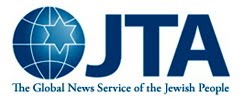 A campaign to engage Jewish young adults in becoming activists for racial justice is sponsoring a platform for people to find opportunities across the country for Martin Luther King Day weekend.
A campaign to engage Jewish young adults in becoming activists for racial justice is sponsoring a platform for people to find opportunities across the country for Martin Luther King Day weekend.
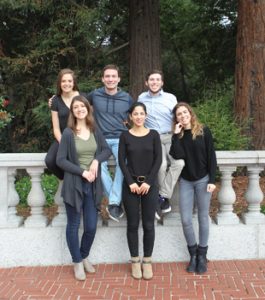

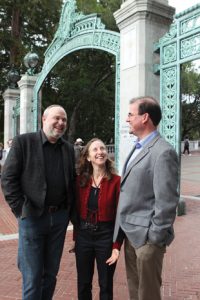

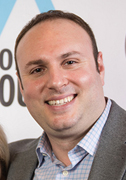
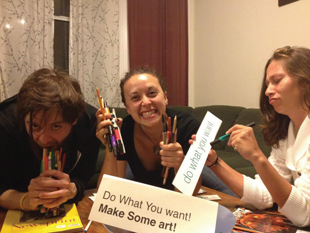
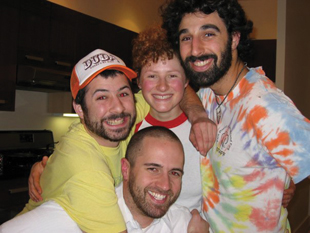
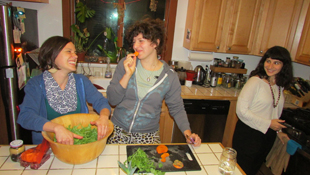
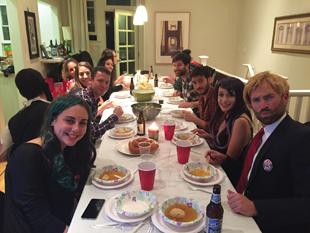
 a full Shabbat dinner over a Dutch oven. At night, they go stargazing, and he loves to teach people that the expression “mazal tov” actually comes from navigating by the stars.
a full Shabbat dinner over a Dutch oven. At night, they go stargazing, and he loves to teach people that the expression “mazal tov” actually comes from navigating by the stars.
 The Jewish Theological Seminary (JTS), Yeshiva University and Hebrew Union College-Jewish Institute of Religion (HUC-JIR) recently completed a six-year, $45 million initiative funded by the Jim Joseph Foundation that increased the number of Jewish educators who earned advanced degrees and credentials from the three schools, provided for new or improved teaching programs, and boosted the number of educators who received jobs or promotions.
The Jewish Theological Seminary (JTS), Yeshiva University and Hebrew Union College-Jewish Institute of Religion (HUC-JIR) recently completed a six-year, $45 million initiative funded by the Jim Joseph Foundation that increased the number of Jewish educators who earned advanced degrees and credentials from the three schools, provided for new or improved teaching programs, and boosted the number of educators who received jobs or promotions.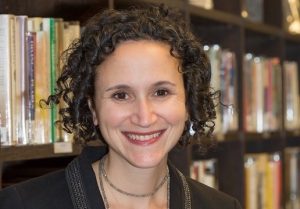
 Funder Collaborative is expanding co-investments and shared learnings of Jewish teen initiatives.
Funder Collaborative is expanding co-investments and shared learnings of Jewish teen initiatives.

